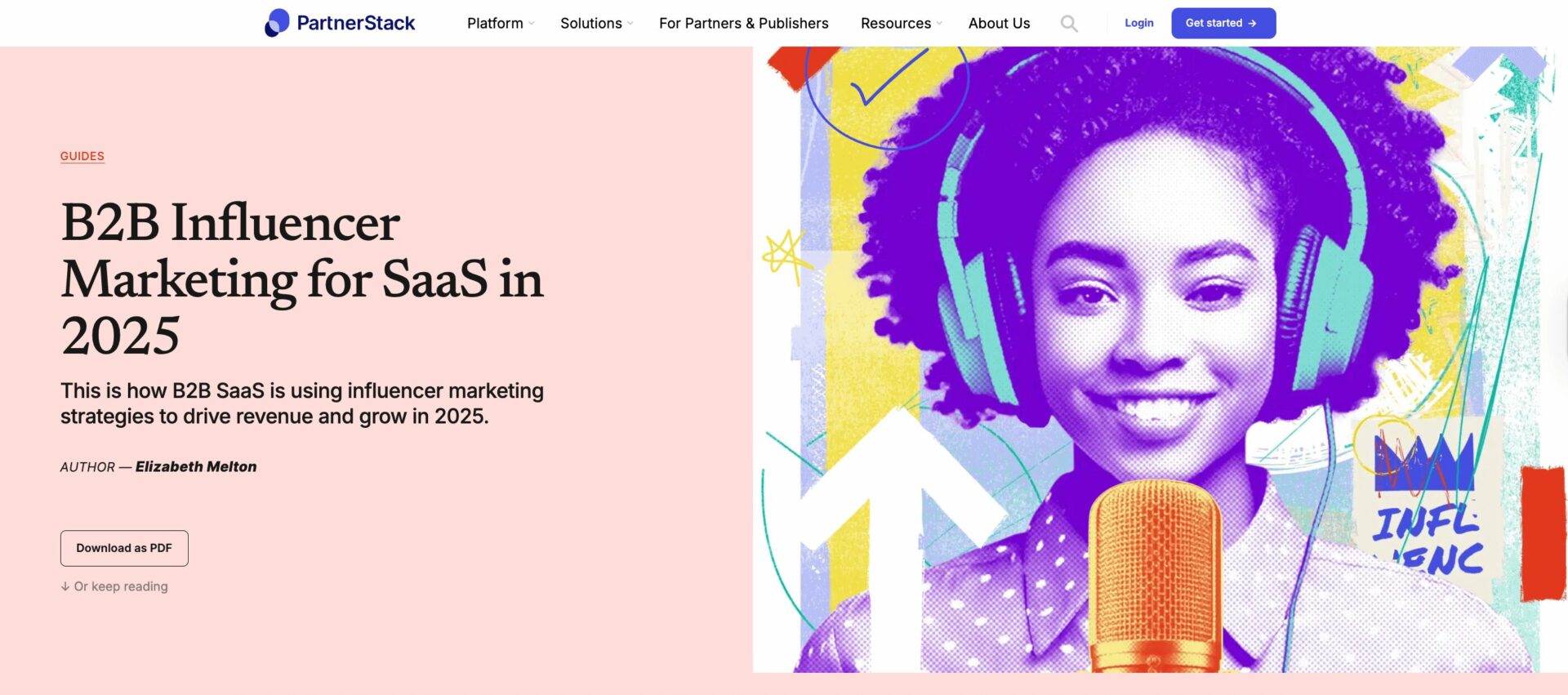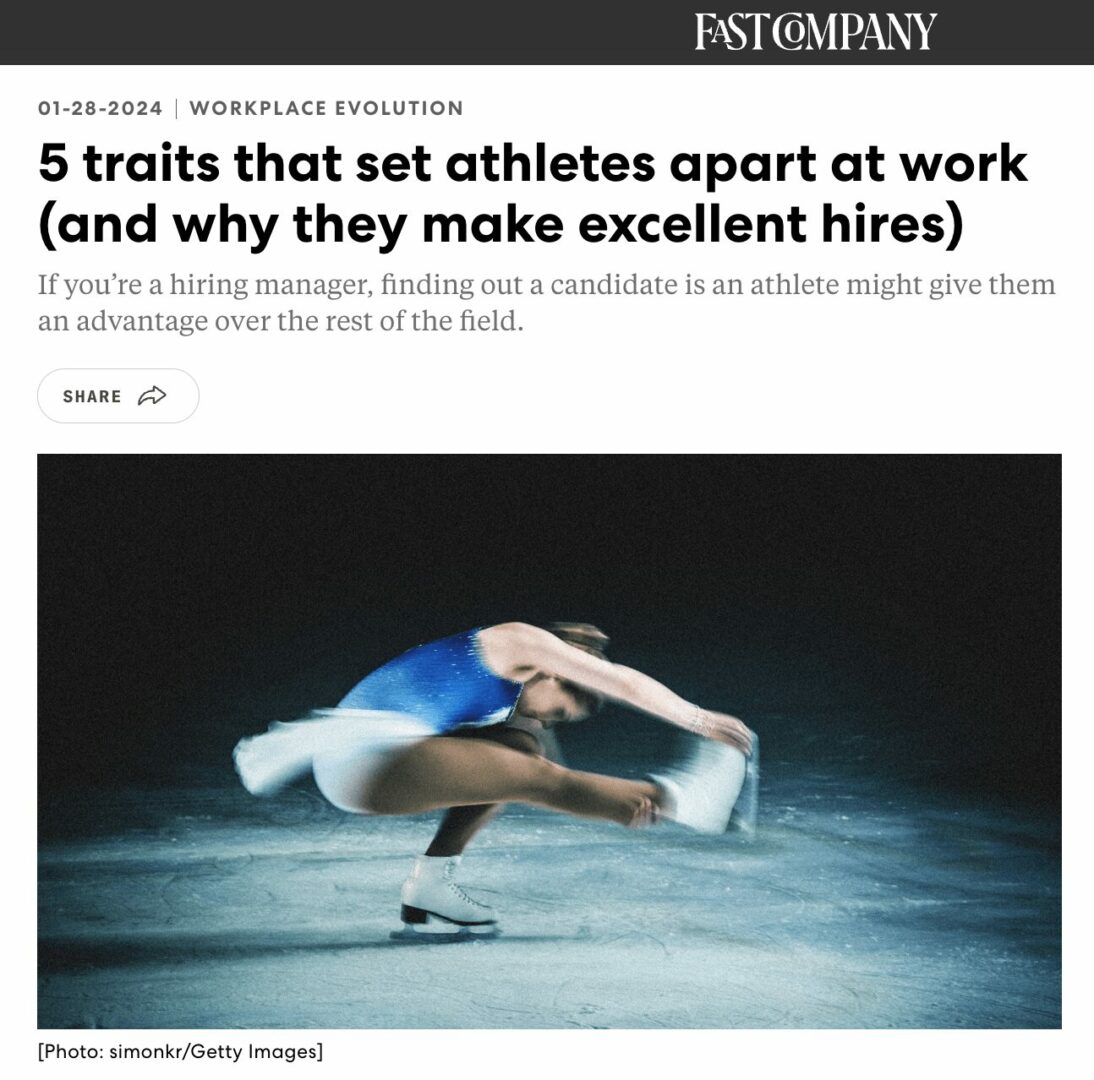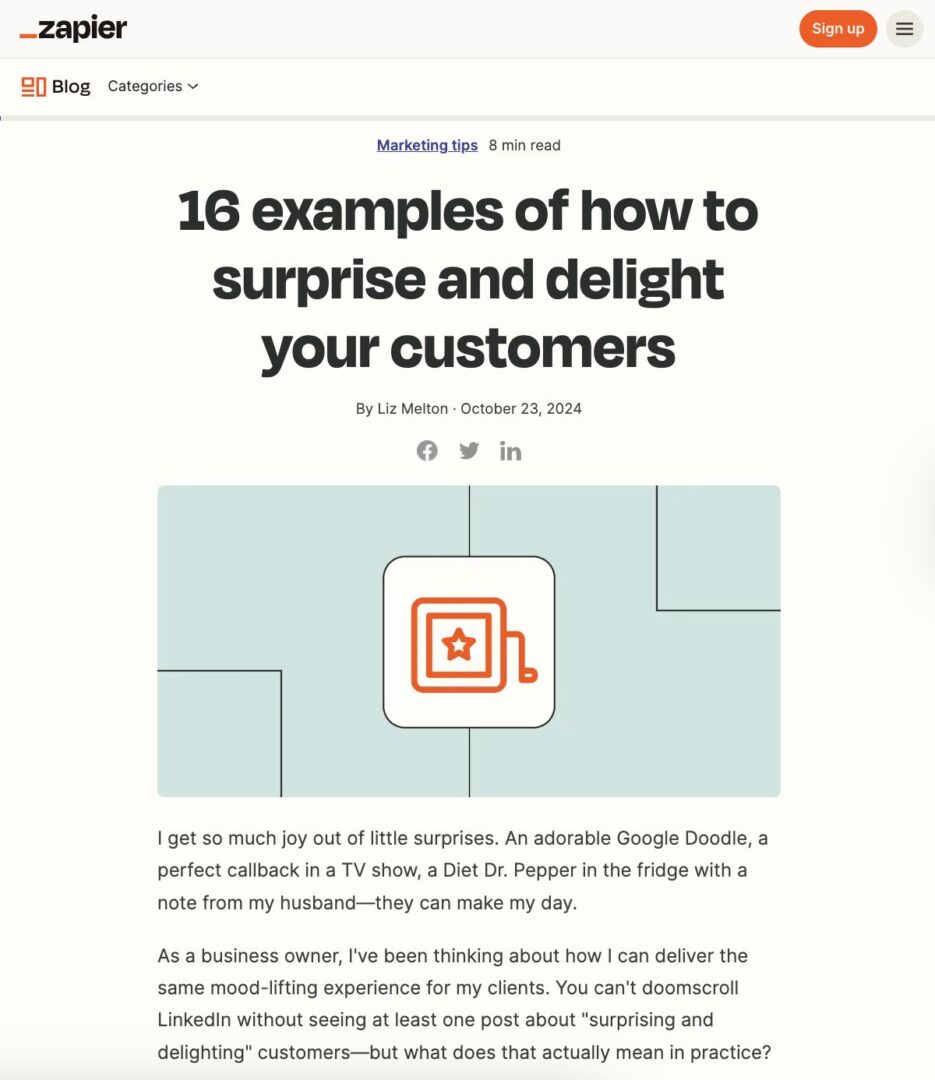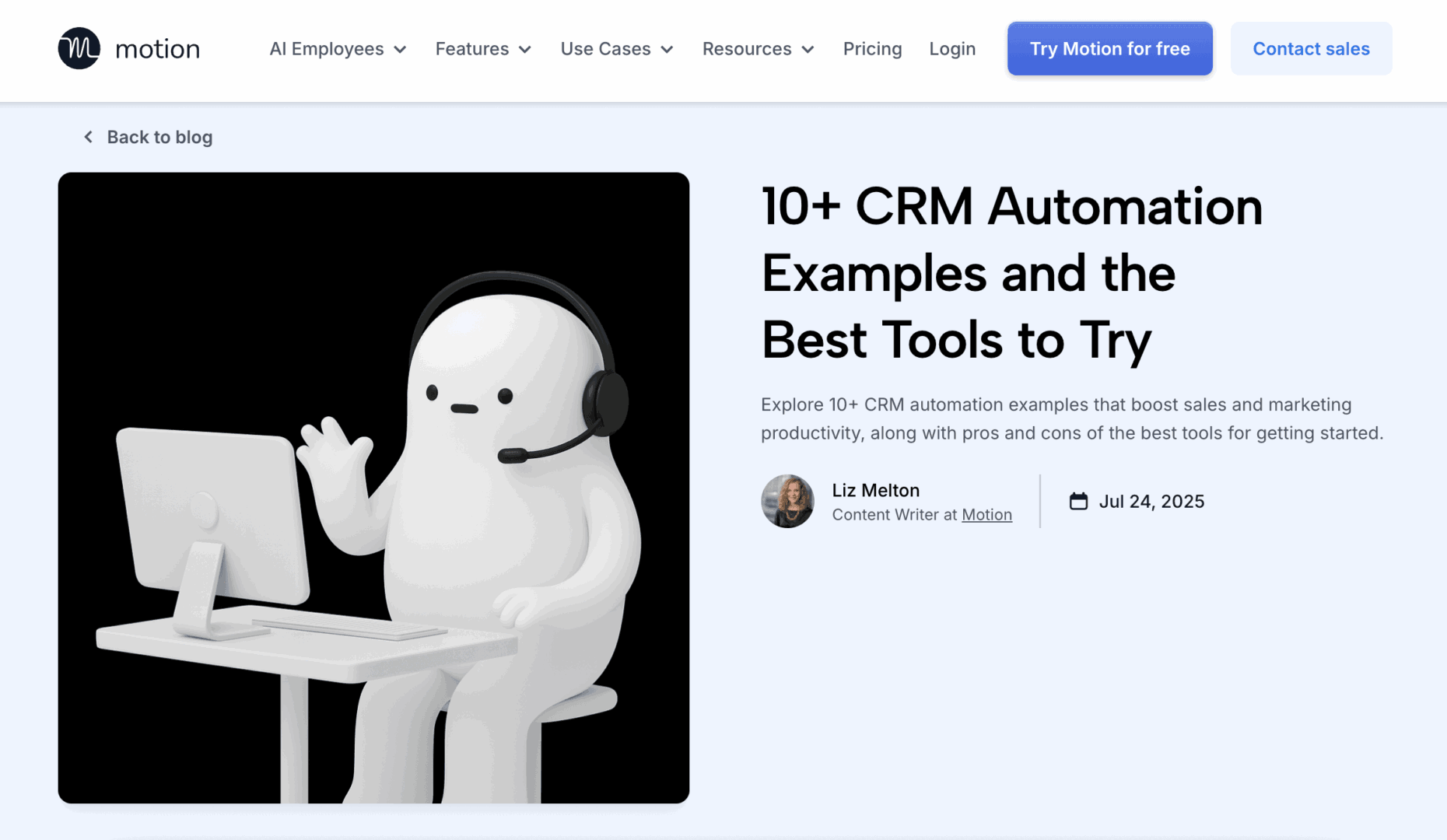We’re looking forward to introducing you to Liz Melton. Check out our conversation below.
Liz, we’re thrilled to have you with us today. Before we jump into your intro and the heart of the interview, let’s start with a bit of an ice breaker: What do you think is misunderstood about your business?
That I just write all day.
In reality, a vast majority of my day revolves around understanding the topic I’m writing about in the context of the vertical my clients operate in, and what might differentiate their product or service from those of their competitors. Sometimes that involves interviewing subject matter experts. Other times, that means listening to industry podcasts. Most of the time, it means frantically switching between Google or Reddit search tabs and fact-checking ChatGPT Deep Research.
Once I feel like I have a handle on what I’m writing about, I try to package it in a way that (1) makes sense to virtually any reader, (2) uses terms that show I know about the space I’m in, and (3) is compelling enough to boost my client’s credibility, increase their brand awareness, bring them potential partners or new investment opportunities, or nudge one of their prospects toward a purchase.
It’s a lot of code switching—researching, putting myself in the shoes of the reader, speaking with masters in a complex field, writing, editing. But that challenge is the best part of my job, hands down. Just last week, I got to learn and write about:
– How a company trying to digitize scent could help us intercept invasive species, detect airborne diseases, and reveal hidden pollutants.
– The impact the Big Beautiful Bill could have on employee benefits, and what that means for insurance brokers.
– How a company building APIs for property tech used a talent marketplace for engineering support.
– The multidisciplinary investment team at a well-known VC—I rewrote the bios for their new website.
– Why performance marketers might think of cash back credit or debit card offers as prime advertising real estate.
Pretty cool, right?
Can you briefly introduce yourself and share what makes you or your brand unique?
Of course! My name is Liz Melton, and I’m a freelance writer and consultant for B2B SaaS companies.
Before striking out on my own, I spent 10 years in customer success, strategy, and partnerships roles at Accenture, BlackLine, and several other VC-backed startups. Those years taught me how to extract insights from anyone, communicate with the C-suite, and translate complex ideas into crisp, high-impact content.
Today, I work with B2B startups like Zapier, PartnerStack, Front, Motion, and Navattic to sharpen their positioning, scale their blogs, publish standout long-form content, and write case studies their sales teams are proud to share. I also partner with consulting firms like Launch Consulting Group, publications like Fast Company, and ghostwrite content for VCs at firms like Insight Partners and Unusual Ventures.
My work has helped clients 3x their organic traffic, boost engagement time by 30%+, and grow their social presence by double-digit percentages in under a year. What makes my approach different is simple: my goal isn’t just to churn out content. I want to make people think.
Whether it’s a guide on digital credentials, a blog on card-linked offers, or fresh positioning for a dev tool, I want readers to finish a piece and say: this is valuable, this is something I can use or share today.
Amazing, so let’s take a moment to go back in time. What did you believe about yourself as a child that you no longer believe?
Being a jill of all trades is a bad thing.
When I was younger, I thought you had to pick a lane. You were a pharmacist, lawyer, musician, firefighter, and that was it. That was your calling.
That perspective was likely shaped by the adults around me, who had very prescriptive jobs. I was a figure skater (spoiler for the next section), and everyone in that world was a coach, a physical trainer, a facilities manager. Even my parents had straightforward jobs: my dad was a doctor, and my mom was a dentist. My friends’ parents were lawyers and “business people” (I had no clue what they were actually doing, lol).
Problem was, I never fit into that mold. I was curious about far too many things. I loved skating, but I also loved reading Jodi Picoult books. I was a science geek (anyone else watch Untold Stories of the ER or House?), and I had a rock and mineral collection. I liked making collages and waterskiing. Enjoying that kind of mishmash of things made me feel unfocused, like these random interests were a waste of time.
College broke that belief for me. I met people who refused to be boxed in: computer science majors who also sang in a cappella groups and played competitive ping-pong. Almost every classmate was actively pursuing multiple interests, and they gave me permission to do the same.
When I entered the corporate world, that pressure to specialize came back. To be successful, I felt like I had to pigeonhole myself into one title or track. It frustrated me, because I knew from experience that people are far more interesting—and more impactful—when they draw from different parts of themselves. Ultimately, that’s why I left.
Now, I see being a jill of all trades as one of my biggest strengths. It makes my life so much richer and gives me knowledge to draw from in unexpected moments, whether I’m trying to think of a hook for my client’s Substack that week, talking to a prospective client, or sitting next to someone fascinating on a plane. You never know when those threads will tie together.
What have been the defining wounds of your life—and how have you healed them?
Growing up, I was a competitive figure skater, and that role basically defined my life from the time I was six. Even now, when I see people from back home in Chicago, they still ask me about skating (I quit 16 years ago).
For years, I loved everything about it—I loved going fast, I loved expressing myself to all kinds of music, I loved getting those shakes of excitement after competing, I loved being able to say, ‘I can do that!’ when other skaters performed on TV, and I loved my friends at the rink.
But after a while, skating started to feel a lot like work. By high school, I was overtrained and mentally drained. I’d missed almost every fun school event you could imagine. I didn’t have many friends outside of skating, and I felt really torn between two worlds—I couldn’t fully dedicate myself to either.
I was forced to take a break when I suffered from a bad injury. And that break was agony. I felt like if I quit, I was giving up on the dream I’d had forever: to pursue skating as far as I could. I’d dedicated my whole life to it up until this point, and I wanted so badly to compete at Worlds, or even the Olympics one day. It was crushing to think that I would never get there.
If I quit and went to college like every other 18-year-old I knew, what would I say when I introduced myself? I couldn’t call myself a figure skater anymore. If I did, I’d have to explain that I failed.
Looking back, it was a major identity crisis, and it manifested physically. I got sick a lot and started to get migraines—one doctor even thought I had meningitis. I wasn’t even that excited when I got acceptance letters to some incredible schools. I was too sad and embarrassed to be happy for myself. Really, I think the only thing that kept me going was the chance of reinvention. To think about who I wanted to be, not what I wanted to be. And it’s something I still have to remind myself today: I am my whole self, not just a writer.
Sure, so let’s go deeper into your values and how you think. Is the public version of you the real you?
In some ways, yes. But the public version of me tends to be taken far more seriously than the real me.
Some back story: Early in my career, I worked really hard, often harder than I should have. I wanted to be the person my boss could count on, and I thought that kind of effort would translate into promotions, raises, and other cool opportunities. More often than not, there wasn’t a big payoff.
Part of that, I think, was due to factors I couldn’t control. Of course, I could’ve worked a little smarter, played politics better—I totally own that. But I’m also a fairly small woman with a high-pitched voice. In corporate settings, that was not an asset at all. Most people thought I was younger than I actually was, assumed I didn’t know what I was doing, or that I lacked confidence in the ideas I presented. Earning respect was an uphill battle.
Since starting Liz the Wordsmith, the tables have turned. Now I’m talking to clients and their clients *after* they’ve read something I’ve written. On paper, my voice is sharp and authoritative, and it’s why people seek me out. My work finally speaks for itself, and that’s validating. But it also makes me wonder why it took this other “persona” to believe in my hard work.
I know I’m not alone. A recent Wall Street Journal-University of Chicago poll found that nearly 70% of people don’t believe the American dream—if you work hard enough, you’ll achieve your goals—is true anymore, or ever was. My hope is that more people feel empowered to carve out paths where their work is recognized on its own terms, whether that’s freelancing, building something of their own, or pursuing a different kind of work entirely.
Okay, so let’s keep going with one more question that means a lot to us: What do you understand deeply that most people don’t?
What it’s like to lose a parent. Stinks to end on a solemn note, but here we are.
I lost my dad in college, and it’s surprising how much that loss has come up in my work life since, and hiding your feelings is hard. If I got a random wave of sadness, all of a sudden, I’d find it super tough to concentrate. But telling my boss what was going on felt awkward, and I was worried I’d be perceived as weak.
Back when I was interviewing for full-time roles, it was also tough to explain the trajectory of my career post-college without mentioning my father’s death—I took a hard pivot from being pre-med to pursuing tech. But I didn’t want it to seem like I was playing some kind of pity card.
The biggest thing I’ve taken away is that loss changes you. It makes you more empathetic (in and out of the workplace). It sharpens your perspective on what matters and what doesn’t. And for me, it fueled a dedication to pursuing work that feels meaningful and to creating content that makes people feel smarter, happier, and more understood.
If you’re dealing with a traumatic experience and are curious how other people have dealt with it in the workplace, I wrote a piece for Zapier that includes some of their perspectives and advice: https://zapier.com/blog/how-trauma-affects-your-work/.
Contact Info:
- Website: https://www.lizthewordsmith.com/portfolio
- Linkedin: https://www.linkedin.com/in/elizabethmelton1/




Image Credits
PartnerStack, Zapier, Fast Company, Motion
so if you or someone you know deserves recognition please let us know here.



